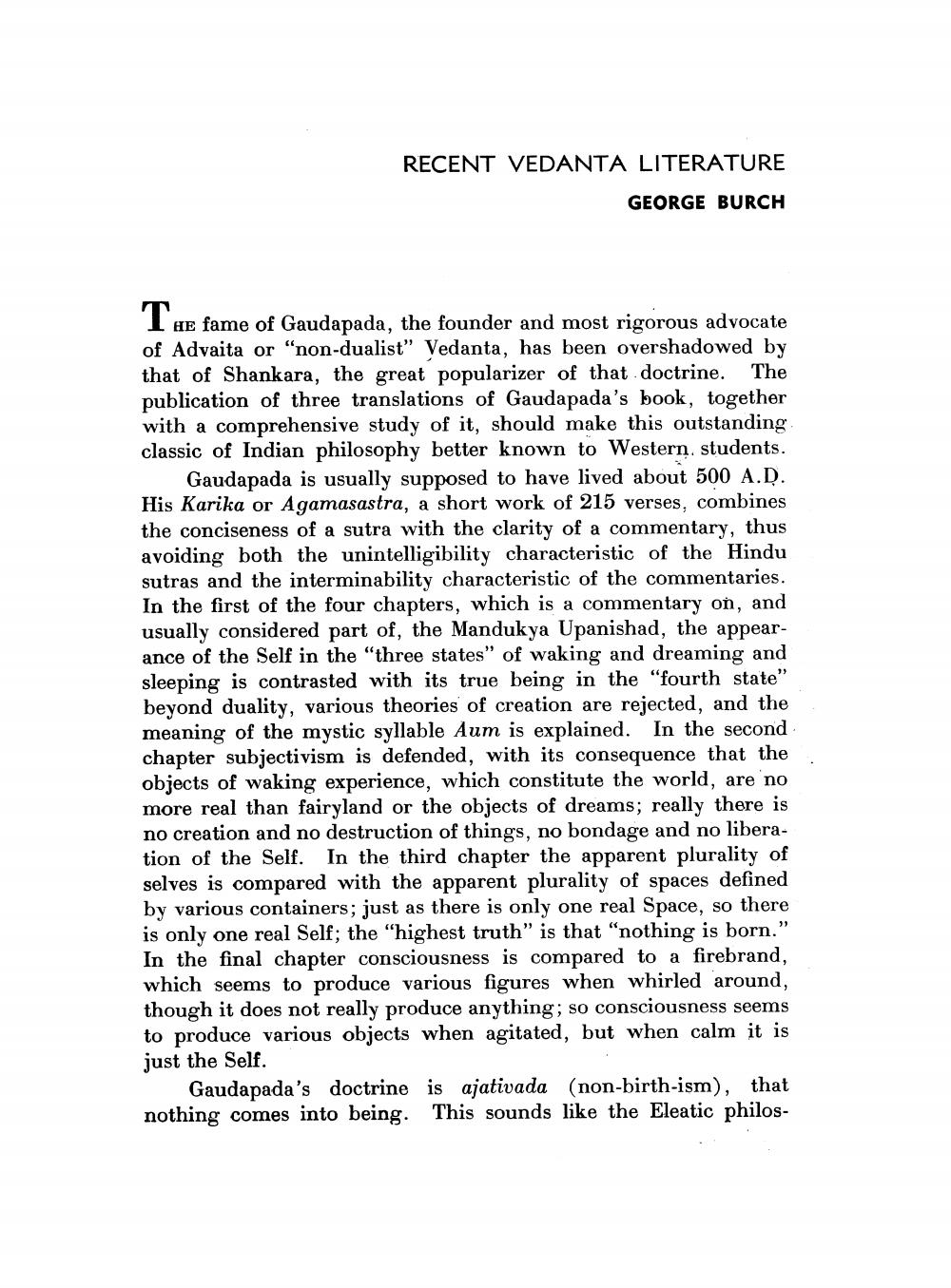Book Title: Recent Vedanta Literature Author(s): George Burch Publisher: George Burch View full book textPage 1
________________ RECENT VEDANTA LITERATURE GEORGE BURCH I ne fame of Gaudapada, the founder and most rigorous advocate of Advaita or "non-dualist" Vedanta, has been overshadowed by that of Shankara, the great popularizer of that doctrine. The publication of three translations of Gaudapada's book, together with a comprehensive study of it, should make this outstanding classic of Indian philosophy better known to Western students. Gaudapada is usually supposed to have lived about 500 A.D. His Karika or Agamasastra, a short work of 215 verses, combines the conciseness of a sutra with the clarity of a commentary, thus avoiding both the unintelligibility characteristic of the Hindu sutras and the interminability characteristic of the commentaries. In the first of the four chapters, which is a commentary on, and usually considered part of, the Mandukya Upanishad, the appearance of the Self in the "three states" of waking and dreaming and sleeping is contrasted with its true being in the "fourth state" beyond duality, various theories of creation are rejected, and the meaning of the mystic syllable Aum is explained. In the second chapter subjectivism is defended, with its consequence that the objects of waking experience, which constitute the world, are no more real than fairyland or the objects of dreams; really there is no creation and no destruction of things, no bondage and no liberation of the Self. In the third chapter the apparent plurality of selves is compared with the apparent plurality of spaces defined by various containers; just as there is only one real Space, so there is only one real Self; the "highest truth" is that "nothing is born.” In the final chapter consciousness is compared to a firebrand, which seems to produce various figures when whirled around, though it does not really produce anything; so consciousness seems to produce various objects when agitated, but when calm it is just the Self. Gaudapada's doctrine is ajativada (non-birth-ism), that nothing comes into being. This sounds like the Eleatic philosPage Navigation
1 2 3 4 5 6 7 8 9 10 11 12 ... 29
